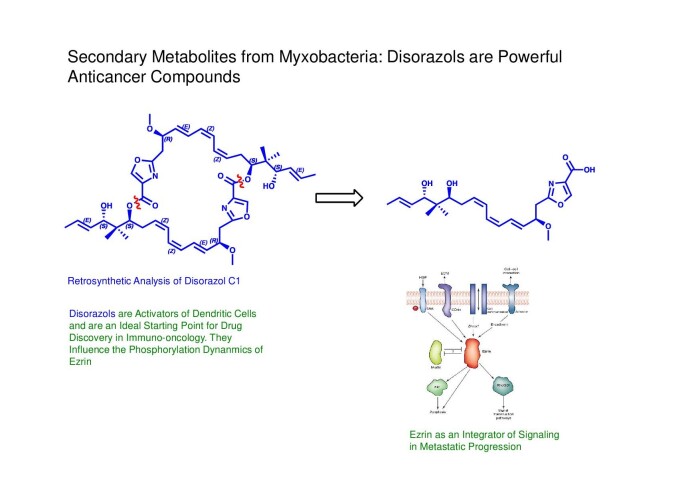Natural Products in Immuno-Oncology
Natural Product-Derived Immune Agonists: A New Approach to Cancer Immunotherapy
Natural products: The best source of molecular scaffolds for drug discovery
Nearly 75% of all FDA-approved small molecule anti-cancer drugs are derived from natural products. In spite of this, the pharmaceutical industry has deemphasized natural product research in favor of high-throughput screening of fully synthetic compound libraries to discover novel anti-cancer drugs. Natural products have several advantages over fully synthetic compounds, such as production by large scale fermentation. Natural products have evolved to interact with biomolecules (e.g. proteins) and, therefore, are privileged lead structures for the development of new medicines. Success stories, such as the discovery and development of taxol or the epothilones hence also provided new insights into fundamental biological processes like tubulin polymerization. Natural products are also known to regulate the immune system and have great potential as lead structures for drug discovery in cancer immunotherapy.

The complexity of the tumor microenvironment implicates a multitude of new therapeutic targets. New immunotherapeutic combinations will require compounds with low toxicity, high specificity and excellent pharmacological properties. Natural products are endowed with attributes innately well suited for combination immunotherapy. Many natural products have evolved as important immune modulators with unique access to the immune cell compartment.
Members of the disorazole family (e.g. disorazoles A1 and Z) of myxobacterial macrodiolides target cancer cells by inhibiting tubulin polymerization and destabilizing microtubules. In addition, they activate dendritic cells and increase the immune effector lymphocyte activity by affecting the dynamic phosphorylation of ezrin, a key mediator of immune receptor activity. Ezrin regulates B and T cell receptor activation and downstream signaling. Ezrin is also a key driver of tumor progression and spread, and ezrin-targeting compounds have been shown to block metastasis.





